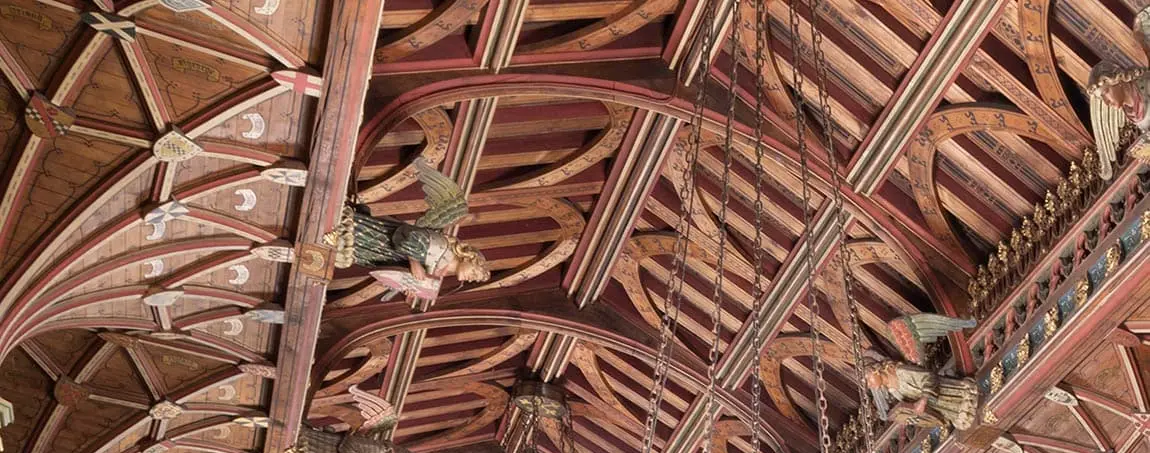Understanding your heritage
By fully understanding the heritage that your project is about you will be able to:
- know why people value your heritage so you can make sensitive and appropriate decisions about how to look after it in the future
- identify the potential for creative and sustainable solutions to improve the condition of the heritage
- better engage with your staff, volunteers and visitors
- uncover new information, insights or fresh perspectives of your heritage
How best to understand your heritage
To understand your heritage, you could consider the following three questions.
What is the heritage focus of your project?
Start by describing the heritage.
If your project is about intangible cultural heritage (such as memories or cultural and oral traditions) you should set out information about the subject and the time period it covers. Highlight if the heritage is at risk of being lost in some way. We have some information on intangible heritage that you may find useful.
If your project is about physical heritage (such as a building, ship, historic object or collection, or nature reserve), state factual information about it such as its size, when it dates from, the surviving features, its condition and why it is important to your local area.
Why does the heritage matter?
Having established the facts you should now think about why your heritage is considered to be important or significant.
There are many reasons why people value heritage and want to conserve it or pass traditions onto future generations. Seek views from as wide a range of people as possible.
The following list of questions offer some ways to think about what makes your heritage special to people but it is not exhaustive:
- Why is the heritage important to history? Is it associated with important people or events?
- How does the heritage contribute to our understanding of the past? What does it tell us about people and society?
- What are the artistic or aesthetic qualities of the heritage?
- If it has a physical location, how does it contribute to or complement the wider environment? Is it a landmark?
- Is the heritage of technical importance – does it tell us about innovation? Is it the first of its type?
- Is the heritage of importance to science, for example for its wildlife, geology, biodiversity or ecology?
- Are the materials that it is made from important? Does it display a particular craft skill well?
- How does it compare with other heritage of its kind? Is it a rare or unique example or the best of its type?
- Has the heritage been featured in films, paintings or in literature?
- Is the heritage important for commemorative or spiritual reasons?
- If it is a tradition, custom, skill or knowledge, is it being practiced today? How has it been passed down through generations?
- Has the value of the heritage changed through time? Was it important for different reasons in the past?
- Does the heritage help create a sense of belonging, or perhaps instil a sense of pride in the area?
Sometimes heritage is registered, designated or protected in some way because it has particular significance and needs to be protected from harmful changes. Find out whether your heritage is recorded anywhere, for example it might be registered as a protected species, a listed building, a designated landscape or a UNESCO-recognised tradition.
Often the designation record will provide details about what experts believe to be important.
Who does the heritage matter to?
It is good to gather comments and opinions on the value of the heritage from a range of sources. You might need to commission input from experts in the relevant field but you should also make sure you have talked to a representative sample of the people who interact with your heritage. They might also be able to write a letter of support when you come to apply, demonstrating to us there is real interest in your project.
These groups may include:
- the community who live or work nearby, if your heritage has a physical location
- any groups who take an interest in your heritage, such as friends groups or local interest groups
- people who use the heritage site/object now, or practice or perform it if it is a skill or tradition
- acknowledged experts in the relevant field
- statutory nature conservation organisations (SNCOs) and local authority conservation departments
- volunteers who help look after the heritage
Remember to also consider under-served groups who might not currently be interacting with your heritage, but could do in the future if any potential barriers are removed. See our guidance on running inclusive heritage projects.
Once you have identified who you will talk to, you can consider how you might go about doing this. The methods will depend on your project, who you want to talk to and the resources you have available, but they might include activities such as surveys, focus groups or engagement online or through social media.
Sharing your understanding
Having gathered information about your heritage and why it is important, the next step is to record your findings so that you can share them with other people and use them to help with your application for funding.
We provide lots of good practice guidance to help develop your idea into a great heritage project.
There's bound to be something relevant to your organisation or project idea, with best practice advice in areas such as: evaluation, oral history, working with volunteers, digital, conservation planning and much more.
If you are planning on carrying out works to a church building, you may also need to prepare documents such as statements of significance and any repair needs. The Church of England has guidance on writing statements of significance and needs.
